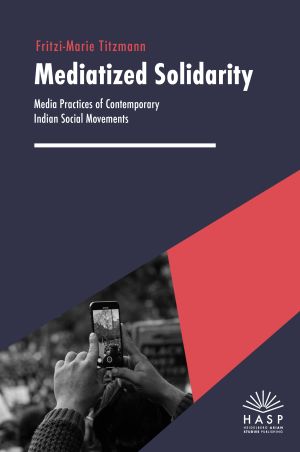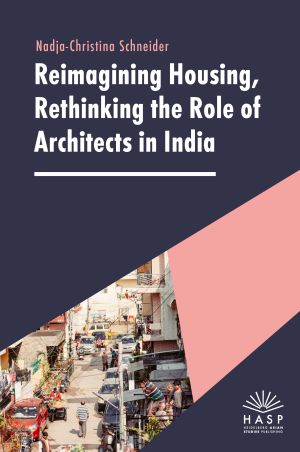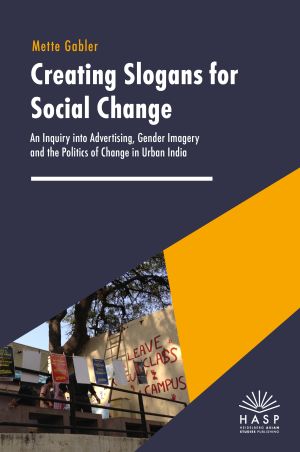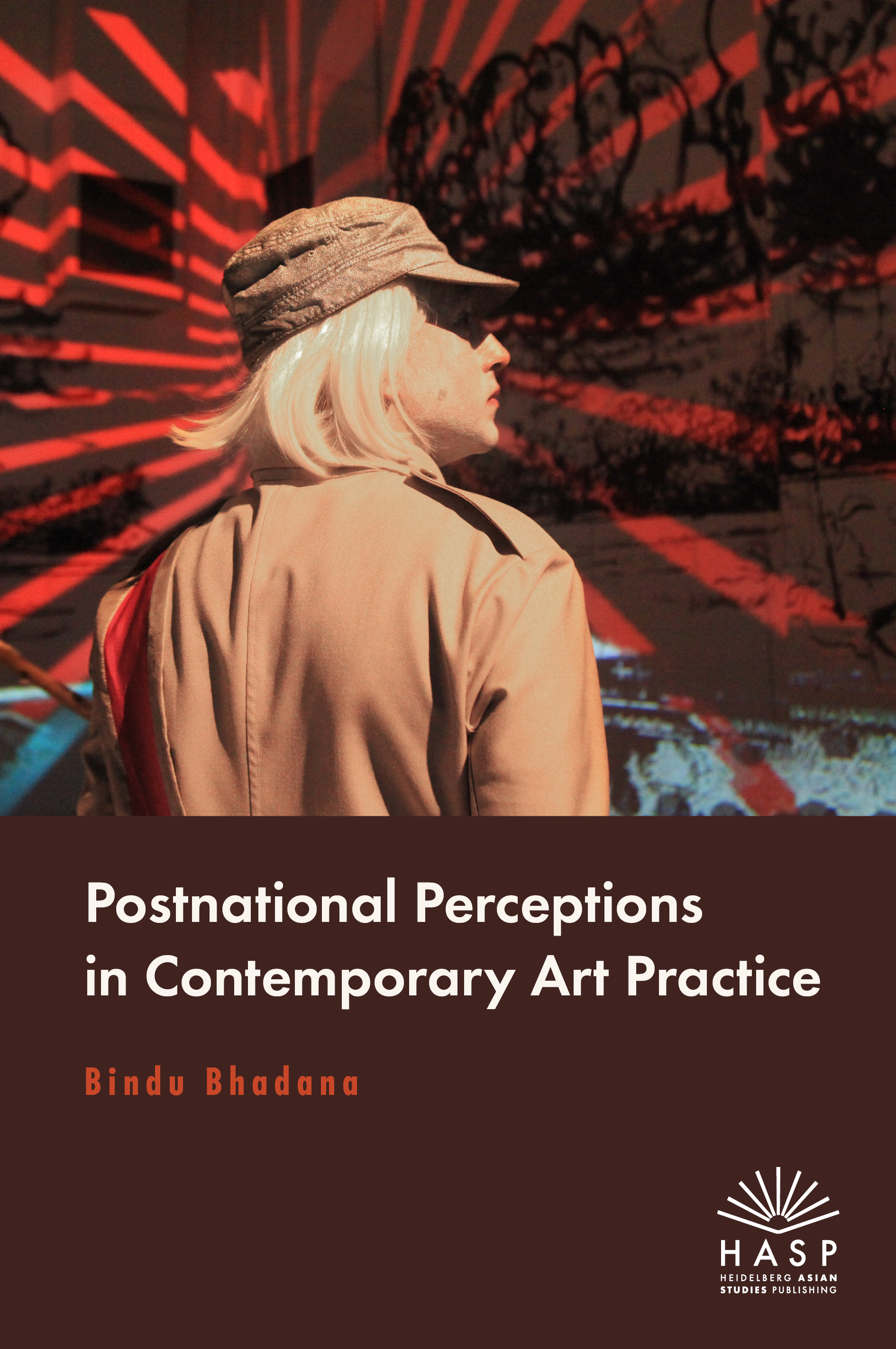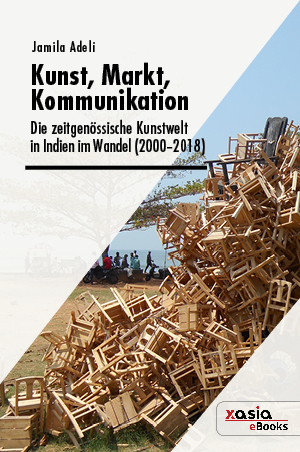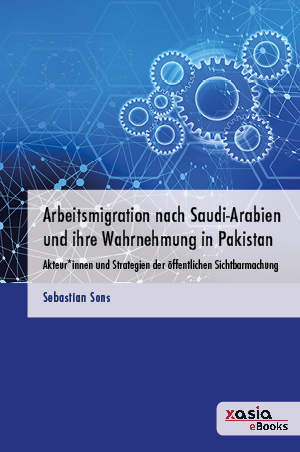Media and Cultural Studies
The "Media and Cultural Studies" series publishes original research results in the area studies that deal with questions of media and cultural studies. An additional focus is laid on innovative research at the interface of media culture and gender studies. In particular, the series serves as a publication platform for transregional and South Asia-related projects, for instance, PhD dissertations or edited volumes. Furthermore, it offers possibilities for multimedia publications.
By individual agreement, the series offers authors of monographs and editors of edited volumes a peer review process to ensure the quality of their publications.

Editor
Prof. Dr. Nadja-Christina Schneider
Professor for Gender and Media Studies for the South Asian Region
Humboldt-Universität zu Berlin
Institute for Asian and African Studies
Invalidenstraße 118
D-10099 Berlin
E-Mail: nadja-christina.schneider@hu-berlin.de
Internet: Homepage
Coming Soon
Mediatised Solidarity
In an era marked by rapid media diffusion and globalised social movements, Mediatised Solidarity delves into the evolving dimensions of solidarity within Indian social and protest movements. Focused on the period from 2014 to the present, it analyses the interplay between media practices, including social media, and solidarity expressions. Through three case studies – Shaheen Bagh, the Indian Farmers’ Protest, and contemporary youth climate activism – the book explores how media and visual art shape and are shaped by solidarity and the extent to which shared memories and cultural heritage are used to stage social cohesion
Published so far
Reimagining Housing, Rethinking the Role of Architects in India
This book explores the self-perception of critical architects in post-independent and contemporary India. It takes particular interest in the role of documentary films and other media forms used by architects to intervene in debates on affordable housing and to share their alternative visions on spatial design and sustainable architecture. As a heterogeneous and highly mobile group of social actors, architects and designers develop and implement viable solutions at the intersection of extremely complex challenges and specific local contexts. The book argues that the interconnections in their design thinking and work can best be understood through the conceptual lens of critical regionalism.
Creating Slogans for Social Change: An Inquiry into Advertising, Gender Imagery, and the Politics of Change in Urban India
What role media content plays in processes of change is an ongoing and multi-layered discussion. Therein, advertising and gender have an extraordinary position. In the context of advertising production in urban India, this book deals with the understanding of social change in the early 2010s. Through an inquiry of the production of advertising created for commercial and/or social purposes, the perceptions of advertising producers are highlighted. The analysis presents the realities of the producers as well as debates surrounding the creation processes. Thereby, the complexities and intertwining of advertising are uncovered, while dynamics of gender, media, and change are discussed.
Postnational Perceptions in Contemporary Art Practice
This publication focuses on the works of Chitra Ganesh (b.1974), Tejal Shah (b.1979) and Nikhil Chopra (b.1976) in order to highlight the changing relationship of the gendered body with national identity in contemporary art practice. Ideas of national belonging are challenged precisely through a concerted focus on identities marginalized by the nation. It proposes the ‘postnational’ as an empowering term to mark the shift away from the nation, and, employing a post-structural framework, it argues that the nature of national identity is in itself a construct.
Kunst, Markt, Kommunikation: Die zeitgenössische Kunstwelt in Indien im Wandel (2000-2018)
Contemporary visual art has long since ceased to take place only in Western art centres. In particular, "emerging art markets" such as India or China, with their aspiring middle and upper classes, have increasingly attracted the attention of the global art field since the beginning of the 2000s. However, these art markets do not simply fit into the Western art establishment, but differentiate themselves into (trans)local art fields. This book traces how (trans)local art institutions, knowledge spaces and resources have evolved in India between 2000 and 2018 and suggests that the transformation of the contemporary art world in India can be understood as a decided process of localisation. Based on the India Art Fair, the Kochi-Muziris-Biennale and the positioning and practices of local art actors in Mumbai, Delhi and Kochi, a new self-understanding of the art-interested Indian society becomes visible, which increasingly leads to emancipation from Western art centres.
Arbeitsmigration nach Saudi-Arabien und ihre Wahrnehmung in Pakistan: Akteur*innen und Strategien der öffentlichen Sichtbarmachung
Labour migration to Saudi Arabia is considered a system-legitimising and commonplace phenomenon in Pakistan for economic, political, and cultural reasons: the Kingdom acts as an influential external actor in Pakistan at the (security) political, economic, and cultural levels. It is also the most important recipient country of Pakistani migrants. For these reasons, critical issues related to migration are rarely addressed in the Pakistani public sphere and are instead taboo. In recent years, however, new Pakistani public actors from civil society, media, and international organisations have begun to challenge this taboo. They want to make the precarious working and living conditions of migrants, structural violence, and the systemic exploitation within the migration process visible in the media. In this way, the new public actors contribute to a change in the media in Pakistan that challenges existing narratives and taboos on migration. Based on extensive empirical data, the book analyses the media practices and strategies used by these actors to expand limited public spaces on migration in Pakistan.



